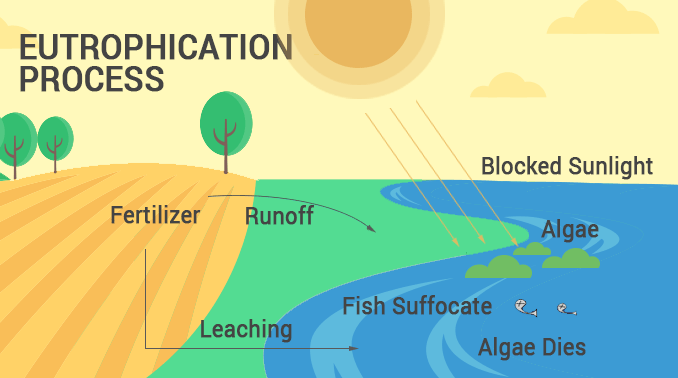Eutrophication: Local Lake in Tiruvallur Chokes with Dead Fishes!
Lachivakkam village, situated in the Uthukkottai taluka of Thiruvallur district in Tamil Nadu, India, is home to around 2500 residents. The footage below shows a nearby lake in Lachivakkam choking with dead fish due to eutrophication.
Eutrophication is the process by which an entire body of water, or parts of it, becomes progressively enriched with minerals and nutrients, particularly nitrogen and phosphorus. Though eutrophication is a natural process it becomes a menace when untreated wastewater is discharged into freshwater bodies such as lakes and ponds destroying the natural ecosystem. Eutrophication is particularly a problem in developing countries like Asia and Africa.
Impact of Eutrophication
- Algal Blooms: Excess nutrients lead to rapid algae growth, causing algal blooms. These blooms can block sunlight from reaching the deeper waters, stifling the growth of submerged plants and negatively affecting fish populations.
- Oxygen Depletion: As algae and aquatic plants die and decompose, they consume oxygen. This can lead to oxygen depletion in the water, creating “dead zones” where fish and other aquatic organisms struggle to survive.
- Fish Kills: The reduced oxygen levels and altered aquatic ecosystem dynamics can result in fish kills. The sight of dead fish floating on the water’s surface becomes a common occurrence.
- Water Quality Degradation: Eutrophication often leads to foul-smelling, murky water, rendering it unsuitable for recreational activities and diminishing its aesthetic value.
- Economic Impact: Impaired water quality affects local economies, especially in regions where fishing and tourism are major sources of income.


